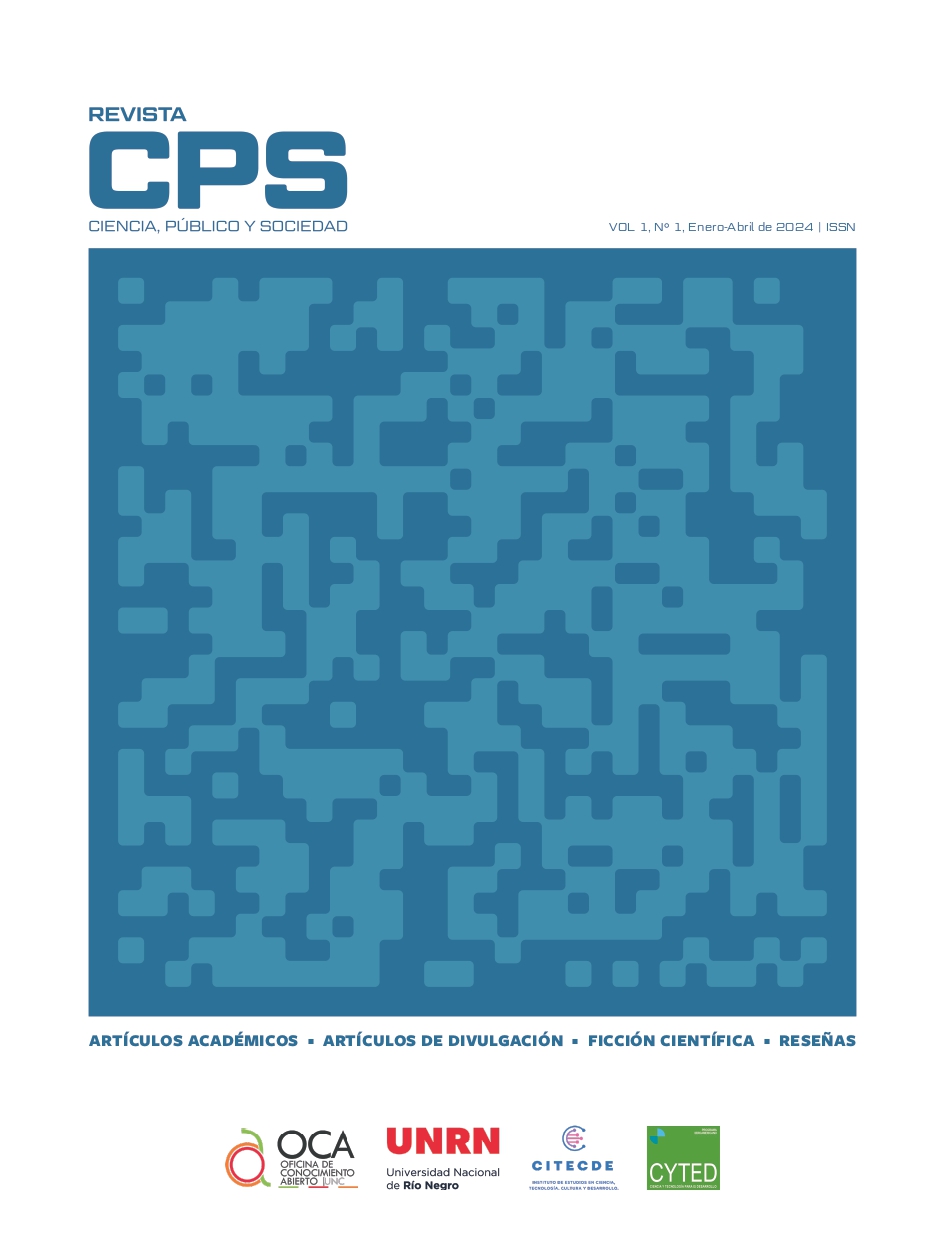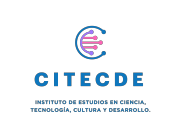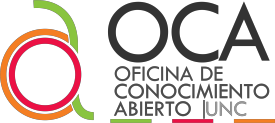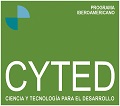¿Qué hay en un nombre? La política de los síntomas post- covid en tres países
Palabras clave:
Confianza, política de la expertise, redes de expertise, Covid Persistente, Covid-19, experiencia de pacientesResumen
La persistencia de síntomas a largo plazo tras una infección por Covid-19 se ha convertido en un complejo problema médico, científico y económico en numerosas sociedades de todo el mundo. Además, la forma de abordar este problema puede tener importantes consecuencias en términos de confianza o falta de esta en las instituciones científicas, médicas y políticas. A partir de tres estudios sobre experiencias de pacientes con la recuperación del Covid-19 en Estados Unidos, Brasil y China, descubrimos
variaciones significativas en la forma en que los pacientes hablan de su enfermedad en los tres países. Mientras que los pacientes estadounidenses adoptan el Covid Persistente como una identidad de la enfermedad, los pacientes chinos se mostraron cautelosos a la hora de utilizar el término, y los pacientes brasileños se situaron en un punto intermedio entre ambos. Estas diferencias en la denominación se hacen inteligibles dentro de una cuadrícula compuesta por tres ejes transversales de comparación: (1) la política simbólica de clasificación y representación de la enfermedad; (2) los canales institucionalizados de prestación de asistencia sanitaria y del Estado de bienestar; y (3) la posición en el sistema geopolítico global y de producción de conocimiento. Llegamos a la conclusión de que, aunque las instituciones sanitarias públicas mundiales consigan institucionalizar el Covid persistente como una categoría de enfermedad estándar, seguirá habiendo diferencias significativas entre países en cuanto al significado y el alcance de la afección, debido a las diferencias en las políticas del conocimiento en cada país.
Referencias
Abbott, A. (1988). The System of Professions: An Essay on the Division of Expert Labor. University of Chicago Press.
Au, L., Capotescu, C., Curi, A. Gonçalves Leonel da Silva, R., & Eyal, G. (2023). “Long Covid Requires a Global Response Centred on Equity and Dialogue.” Global Health Action, 16(1), 2244757. https://doi.org/10.1080/16549716.2023.2244757
Au, L., Capotescu, C., Eyal, G., & Finestone, G. (2022). “Long Covid and Medical Gaslighting: Dismissal, Delayed Diagnosis, and Deferred Treatment.” SSM - Qualitative Research in Health, 2(December), 100167. https://doi.org/10.1016/j.ssmqr.2022.100167
Au, L., & Eyal, G. (2022). “Whose Advice Is Credible? Claiming Lay Expertise in a Covid-19 Online Community.” Qualitative Sociology, 45(1), 31–61. https://doi.org/10.1007/s11133-021-09492-1
Au, L., Fu, Z., & Liu, C. (2022). “‘It’s (Not) Like the Flu’: Expert Narratives and the COVID-19 Pandemic in Mainland China, Hong Kong, and the United States.” Sociological Forum, 37(3), 722–43. https://doi.org/10.1111/socf.12819
Barker, K. (2009). The Fibromyalgia Story: Medical Authority And Women’s Worlds of Pain. Temple University Press.
Barker, K., Whooley, O., Madden, E. F., Ahrend, E., & Greene, R. N. (2022). “The Long Tail of COVID and the Tale of Long COVID: Diagnostic Construction and the Management of Ignorance.” Sociology of Health & Illness, December, 1467-9566.13599. https://doi.org/10.1111/1467-9566.13599
Callard, F., & Perego, E. (2021). “How and Why Patients Made Long Covid.” Social Science & Medicine, 268(January), 113426. https://doi.org/10.1016/j.socscimed.2020.113426
Callon, M., Lascoumes, P., & Barthe, Y. (2009). Acting in an Uncertain World: An Essay on Technical Democracy. MIT Press.
Davis, H. E., McCorkell, L., Moore Vogel, J., & Topol, E. (2023). “Long COVID: Major Findings, Mechanisms and Recommendations.” Nature Reviews Microbiology, January, 1–14. https://doi.org/10.1038/s41579-022-00846-2
Decoteau, C. L., & Meghan, D. (2020). “Scientific Hegemony and the Field of Autism.” American Sociological Review, 85(3), 451–76. https://doi.org/10.1177/0003122420922531
Decoteau, C. L., & Sweet, P. (2023). “Vaccine Hesitancy and the Accumulation of Distrust.” Social Problems, March, spad006. https://doi.org/10.1093/socpro/spad006
Du, Z. D., Wang, Y., Bai, Y., Wang, L., Cowling, B. J., & Ancel Meyers, L. (2023). “Estimate of COVID-19 Deaths, China, December 2022–February 2023 - Volume 29, Number 10—October 2023 - Emerging Infectious Diseases Journal - CDC.” Emerging Infectious Diseases, 29(10). https://doi.org/10.3201/eid2910.230585
Dumes, A. A. (2020). Divided Bodies: Lyme Disease, Contested Illness, and Evidence-Based Medicine. Divided Bodies. Duke University Press. https://doi.org/10.1515/9781478007395
Dumit, J. (2006). “Illnesses You Have to Fight to Get: Facts as Forces in Uncertain, Emergent Illnesses.” Social Science & Medicine, Patient Organisation Movements, 62(3), 577–90. https://doi.org/10.1016/j.socscimed.2005.06.018
Epstein, S. (1995). “The Construction of Lay Expertise: AIDS Activism and the Forging of Credibility in the Reform of Clinical Trials.” Science, Technology & Human Values, 20(4), 408–37. https://doi.org/10.1177/016224399502000402
Epstein, S., & Timmermans, S. (2021). “From Medicine to Health: The Proliferation and Diversification of Cultural Authority.” Journal of Health and Social Behavior, 62(3), 240–54. https://doi.org/10.1177/00221465211010468
Esping-Andersen, G. (1990). The Three Worlds of Welfare Capitalism. Princeton University Press.
Eyal, G. (2013). “For a Sociology of Expertise: The Social Origins of the Autism Epidemic.” American Journal of Sociology, 118(4), 863–907. https://doi.org/10.1086/668448
Eyal, G. (2019). The Crisis of Expertise (1st edition). Cambridge, UK ; Medford, MA: Polity.
Eyal, G., Au, L., Capotescu, C., & Sharp, S. (2024). “How People Decide to Trust in Science. Surveys purporting to document increasing mistrust in research are oversimplifying complex phenomena.” American Scientist, 112, 38–45.
Ghebreyesus, T. A. (2022). “The Data Is Clear: Long Covid Is Devastating People’s Lives and Livelihoods.” The Guardian, October 12, 2022, sec. Society. https://www.theguardian.com/society/2022/oct/12/long-covid-who-director-general-oped-tedros-adhanom-ghebreyesus
Goffman, E. (1961). Asylums: Essays on the Social Situation of Mental Patients and Other Inmates.
Habermas, J. (1970). Toward a Rational Society: Student Protest, Science, and Politics. Polity.
Habermas, J. (1973). Legitimation Crisis. Polity.
Harris, J. (2017). Achieving Access: Professional Movements and the Politics of Health Universalism (1st edition). Ithaca London: ILR Press.
Jutel, A. (2009). “Sociology of Diagnosis: A Preliminary Review.” Sociology of Health & Illness, 31(2), 278–99. https://doi.org/10.1111/j.1467-9566.2008.01152.x
Kelly, A. H., Lezaun, Löwy, J., Corrêa Matta, de Oliveira Nogueira, G. C., & Teixeira Rabello, E. (2020). “Uncertainty in Times of Medical Emergency: Knowledge Gaps and Structural Ignorance during the Brazilian Zika Crisis.” Social Science & Medicine, 246(February), 112787. https://doi.org/10.1016/j.socscimed.2020.112787
Kempner, J. (2014). Not Tonight: Migraine and the Politics of Gender and Health. Chicago: University Of Chicago Press. https://press.uchicago.edu/ucp/books/book/chicago/N/bo18785835.html
Keng, S., Zhong, L., & Xie, F. (2023). “Why Did China’s Zero-COVID Policy Persist? Decision Urgency, Regime Type, and Political Opportunity Structures.” Journal of Contemporary China, 0(0), 1–17. https://doi.org/10.1080/10670564.2023.2193143
Kenney, M., & Mamo, L. (2020). “The Imaginary of Precision Public Health.” Medical Humanities, 46(3), 192–203. https://doi.org/10.1136/medhum-2018-011597
Kuo, L., & Wu, P. L. (2023). “China Abandoned ‘Zero Covid.’ But Some Don’t Want to Leave It behind.” Washington Post, June 6, 2023. https://www.washingtonpost.com/world/2023/06/06/china-covid-zero-restrictions-cases/
Ladyzhets, B. (2023). “‘Underwhelming’: NIH Trials Fail to Test Meaningful Long Covid Treatments — after 2.5 Years and $1 Billion.” STAT (blog). August 9, 2023. https://www.statnews.com/2023/08/09/long-covid-nih-trials/
Lakoff, A. (2005). “Diagnostic Liquidity: Mental Illness and the Global Trade in DNA.” Theory and Society, 34(1), 63–92. https://doi.org/10.1007/s11186-005-6233-4
Latour, B. (1987). Science in Action: How to Follow Scientists and Engineers Through Society. Harvard University Press.
Liu, C. (2020). “‘Red Is Not the Only Color of a Rainbow’: The Making and Resistance of the ‘MSM’ Subject among Gay Men in China.” Social Science & Medicine, 252(May), 112947. https://doi.org/10.1016/j.socscimed.2020.112947
———. (2022). “Seeing Like a State, Enacting Like an Algorithm: (Re)Assembling Contact Tracing and Risk Assessment during the COVID-19 Pandemic.” Science, Technology, & Human Values, 47(4), 698–725. https://doi.org/10.1177/01622439211021916
Liu, C., & Graham, R. (2021). “Making Sense of Algorithms: Relational Perception of Contact Tracing and Risk Assessment during COVID-19.” Big Data & Society, 8(1), 2053951721995218. https://doi.org/10.1177/2053951721995218
Long, Y. (2018). “The Contradictory Impact of Transnational AIDS Institutions on State Repression in China, 1989–2013.” American Journal of Sociology, 124(2), 309–66. https://doi.org/10.1086/698466
Lowenstein, F. (Ed.). (2022). The Long COVID Survival Guide: Stories and Advice from Twenty Long-Haulers and Experts. New York: The Experiment.
Maani, N., & Galea, S. (2020). “COVID-19 and Underinvestment in the Public Health Infrastructure of the United States.” The Milbank Quarterly, 98(2), 250–59. https://doi.org/10.1111/1468-0009.12463
Mol, A. (1999). “Ontological Politics. A Word and Some Questions.” The Sociological Review, 47(1_suppl), 74–89. https://doi.org/10.1111/j.1467-954X.1999.tb03483.x
———. (2002). The Body Multiple: Ontology in Medical Practice. Duke University Press.
National Academies. (2023). “Examining the Working Definition for Long COVID.” https://www.nationalacademies.org/our-work/examining-the-working-definition-for-long-covid
Patient-Led Research Collaborative. (2023). “About the Patient-Led Research Collaborative.” https://patientresearchcovid19.com/
Rabeharisoa, V., Moreira, T., & Akrich, M. (2014). “Evidence-Based Activism: Patients’, Users’, and Activists’ Groups in Knowledge Society.” BioSocieties, 9(2), 111–28. https://doi.org/10.1057/biosoc.2014.2
RECOVER. (2023). “About the Initiative | RECOVER COVID Initiative.” https://recovercovid.org/about
Rushforth, A., Ladds, E., Wieringa, S., Taylor, S., Husain, L., & Greenhalgh, T. (2021). “Long Covid – The Illness Narratives.” Social Science & Medicine, 286(October), 114326. https://doi.org/10.1016/j.socscimed.2021.114326
Russell, D., Spence, N. J., Chase, J-, Tatum Schwartz, Tumminello, C., & Bouldin, E. (2022). “Support amid Uncertainty: Long COVID Illness Experiences and the Role of Online Communities.” SSM - Qualitative Research in Health, 2(December), 100177. https://doi.org/10.1016/j.ssmqr.2022.100177
Segata, J. (2020). “COVID-19, Crystal Balls, and the Epidemic Imagination.” American Anthropologist. www.americananthropologist.org/2020/07/02/covid-19-crystal-balls-and-the-epidemic-imagination/
Segata, J., Grisotti M., & Porto, R. (2022). “COVID-19 in Brazil.” Vibrant: Virtual Brazilian Anthropology, 19(June), e19900. https://doi.org/10.1590/1809-43412022v19e900
Silva, R. G. L., Chammas, R., & Hillegonda M. D. (2021). “Rethinking Approaches of Science, Technology, and Innovation in Healthcare during the COVID-19 Pandemic: The Challenge of Translating Knowledge Infrastructures to Public Needs.” Health Research Policy and Systems, 19(1), 104. https://doi.org/10.1186/s12961-021-00760-8
Souza Leão, L. de. (2022). “Optics of the State: The Politics of Making Poverty Visible in Brazil and Mexico.” American Journal of Sociology, 128(1), 1–46. https://doi.org/10.1086/719936
Stampnitzky, L. (2023). “Rethinking the ‘Crisis of Expertise’: A Relational Approach.” Theory and Society, 52(6), 1097–1124. https://doi.org/10.1007/s11186-023-09510-x
Sweet, P. L., & Giffort, D. (2021). “The Bad Expert.” Social Studies of Science, 51(3), 313–38. https://doi.org/10.1177/0306312720970282
Tan, C. D. (2021). “Defending ‘Snake Oil’: The Preservation of Contentious Knowledge and Practices.” Social Studies of Science, 51(4), 538–63. https://doi.org/10.1177/0306312721992543
Underman, K., & Sweet, P. L. (2022). “Counter-Clinical Spaces.” Sociological Forum, 37(1), 155–76. https://doi.org/10.1111/socf.12783
Valle, C. G. (2015). “Biosocial Activism, Identities and Citizenship: Making up ‘people Living with HIV and AIDS’ in Brazil.” Vibrant: Virtual Brazilian Anthropology, 12(December), 27–70. https://doi.org/10.1590/1809-43412015v12n2p027
Whooley, O., & Barker, K. (2021). “Uncertain and under Quarantine: Toward a Sociology of Medical Ignorance.” Journal of Health and Social Behavior, 62(3), 271–85. https://doi.org/10.1177/00221465211009202
Xinhua. (2022). “‘Zero COVID’ China Aims for Reopening, but Challenges Await.” Xinhua | English.news.cn. http://www.xinhuanet.com/english/2022-10/24/c_1311768339.htm
Yang, S. (2023). “‘I Might Have Been on the Frontline, but I Didn’t Even Have a Sword’: Negotiating Professional Identities during the COVID-19 Pandemic in China.” Social Science & Medicine, 287(November), 114362. https://doi.org/10.1016/j.socscimed.2021.114362
Zhai, Y. (2023). "The Politics of COVID-19: The Political Logic of China’s Zero-COVID Policy." Journal of Contemporary Asia, 0(0), 1–18. https://doi.org/10.1080/00472336.2023.2194322
Zhou, A., Sabatello, M., Eyal G., Lee, S. S., Rowe, J.W., Stiles, D., Swanson, A., & Appelbaum, P. (2021). "Is Precision Medicine Relevant in the Age of COVID-19?" Genetics in Medicine, January, 1–2. https://doi.org/10.1038/s41436-020-01088-4
Descargas
Publicado
Número
Sección
Licencia
Derechos de autor 2024 Gil Eyal, Larry Au, Cristian Capotescu, Amanda Curi, Renan Gonçalves Leonel da Silva, Yijie (Coco) Fang, Jingyu Lang, Shuhan Li, Chang Liu, Jessica Liu, Jian Su

Esta obra está bajo una licencia internacional Creative Commons Atribución-NoComercial-CompartirIgual 4.0.
No se permite un uso comercial de la obra original ni de las posibles obras derivadas, la distribución de las cuales se debe hacer con una licencia igual a la que regula la obra original.






